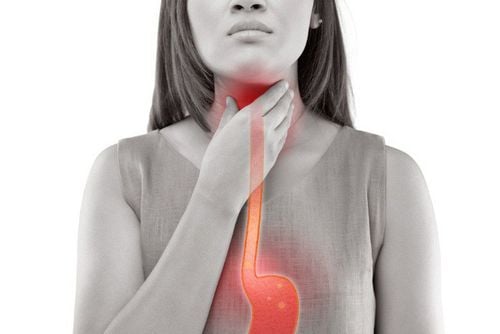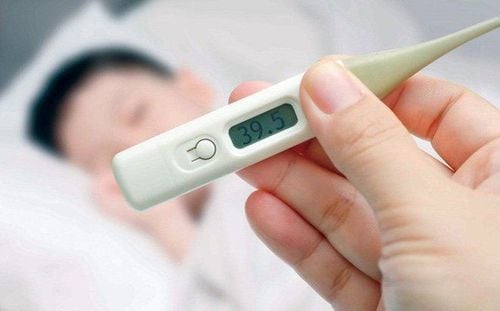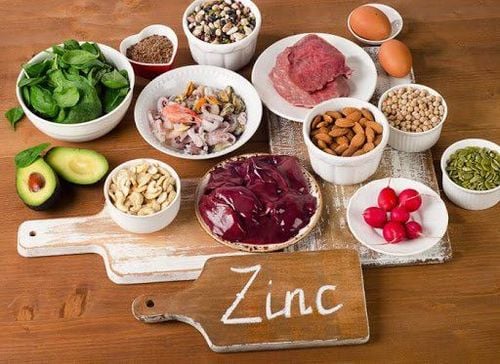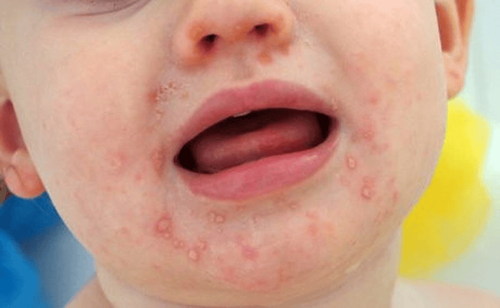Dear Doctor. My baby is 8 months old and is eating, sleeping well, and gaining weight steadily. However, she has not yet started teething, even though other babies start teething at 5 or 6 months old. Could you advise me if there is a problem with my 8-month-old baby not having teeth yet? When should I take my baby to see a doctor? Thank you.
Pham Ngoc (Thuy Nguyen, Hai Phong)
Dear Pham Ngoc. Thank you for trusting and questioning via email of Vinmec International Hospital. In response to your question about an 8-month-old baby who has not yet started teething, Specialist level II Doctor. Tran Thi Linh Chi, Deputy Head of Pediatrics - Neonatology Department at Vinmec Hai Phong International Hospital, provides the following explanation:
1. 8-Month-Old babies and teething: Parents should not be too worry
In children, normally, all 20 primary teeth typically form and reside within the jawbone. After birth, these primary teeth will gradually erupt through the jawbone and gums. It usually takes around 2.5 to 3 years for a child to have a full set of 20 primary teeth.
The primary teething in infants typically follows a specific sequence:
- From 6 to 10 months of age, the baby will typically develop their first two teeth which are the central incisors.
- Between 8 and 12 months, the baby will develop the next two upper incisors, often referred to as the "rabbit teeth".
- By 9 to 13 months, the baby will develop the next two upper incisors. Thus, by the age of 1, babies typically have 6 incisors, including 4 on the upper jaw.
- When the baby is 10 - 16 months, the baby will develop the two lower central incisors.
- After all 8 incisors have erupted, from 13 - 19 months, the baby will develop two upper molars, located further back in the mouth.
- Next, when the baby is about 14 - 18 months, the baby will develop two lower molars.
- From 16 - 22 months, the baby will develop two upper canines to fill the gaps in the tooth row.
- From 17 - 23 months, the baby will develop two lower canines, resulting in a beautiful full smile.
- Finally, from 25 - 33 months, the baby will develop the last two upper molars.

As mentioned earlier in the typical teething sequence, it is not too late for an 8-month-old baby to not teething yet. Some babies may develop their first two central incisors as early as 4, 5 months old. There are also babies who not start teething until 9 - 10 months old. In some cases, babies may even start teething until 11 - 12 months old.Therefore, Ngoc should not be overly worried about her child not having any teeth yet."
Trắc nghiệm: Sự phát triển tinh thần, vận động của bé thế nào là đúng chuẩn?
Khi nào bé biết nói, biết hóng chuyện hay biết cầm cốc là "đúng chuẩn"? Điểm xem bạn biết được bao nhiêu mốc phát triển tinh thần, vận động "đúng chuẩn" của bé nhé!The following content is prepared under supervision of Thạc sĩ, Bác sĩ y khoa, Ma Văn Thấm , Nhi , Phòng khám Đa khoa Vinmec Dương Đông(Phú Quốc)
2. Reasons for delayed teething in 8-month-old babies
If the delayed teething in babies is otherwise developing normally then there is no cause for concern, as this could be a physiological delayed teething.
In case of a delayed teething baby accompanied by other symptoms such as: poor weight gain, stunted growth, decreased appetite, or thinning hair, parents should consult a pediatrician at a specialized pediatric clinic or hospital.
Common causes for delayed teething in 8-month-old babies include:
- Family genetic history
- Prematurity.
- An inadequate diet lacking essential nutrients
- If solid foods are introduced too late, the gums and tooth buds may not be stimulated by chewing and swallowing.
- Malnutrition, growth retardation, deficiencies in calcium, vitamin D, and other essential nutrients. At this moment, the baby often accompanied by symptoms such as poor appetite, thinning hair, night sweats, restless sleep, flat head, and large fontanelles. It is advisable for mom to consult a pediatrician for appropriate evaluation and management.
3. 8-Month-Old not Teething: What should mom do?
In the case of Ngoc’s baby, 8 months old and has not yet started teething but is otherwise developing well, this could be due to physiological variations. However, for peace of mind, it is advisable to consult a pediatrician to check and determine the causes.

In cases where an 8-month-old is not teething due to rickets, malnutrition, in addition to following the doctor's prescribed medication and supplements, Ngoc should consider the following:
The baby's diet should be improved to ensure it is diverse and nutritious. Increase the child's daily food intake, prioritizing foods rich in fat, animal protein, and dairy products,...
Each meal should include 1-2 teaspoons of cooking oil to enhance the absorption of calcium and vitamin D.
Expose the child to sunlight for 15 to 30 minutes before 9 AM or after 4 PM daily to promote vitamin D synthesis, thereby improving calcium absorption.
If the child is breastfed, mothers should maintain a balanced diet and avoid restrictive diets to ensure adequate nutrient transfer through breast milk
If the child is powdered milk-fed, avoid mixing the powder with boiled water, vegetable water, porridge water, or mineral water as this can reduce nutrient absorption.
The above information addresses the concern of is it normal for the 8-month-old babies who have not yet started teething. Ngoc should continue monitoring her baby, if there are still no teeth by 10-12 months, it’s advisable to consult a pediatrician for a more detailed evaluation.
Additionally, parents should provide their children with essential micronutrients such as zinc, lysine, chromium, selenium, and vitamin B1 to meet their nutritional needs. These essential vitamins also aid in digestion, enhance nutrient absorption, and can improve picky eating habits, promoting a healthier appetite. Parents can supplement these nutrients through diet and natural supplements for better absorption. It’s important to note that improving a child's condition often requires a sustained effort. Combining multiple supplements simultaneously or frequently switching between different supplements for short a periods of time of time can overwhelm the child's digestive system and it is not good at all. Therefore, parents must be patient and persistent in accompanying their children, and frequently visit vinmec.com to stay updated on helpful child care information.















